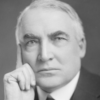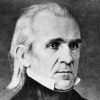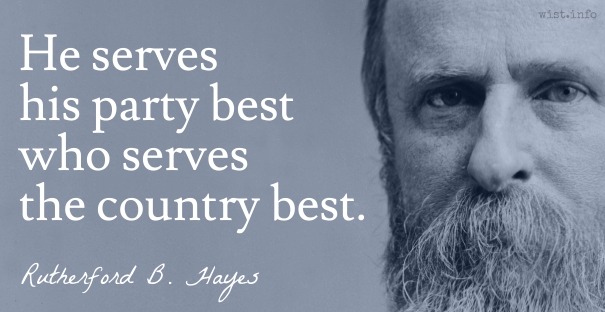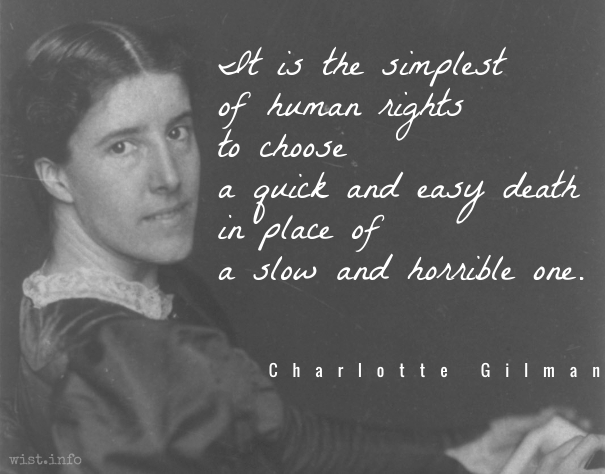One should guard against preaching to the young man success in the customary sense as the aim of life. For a successful man is he who receives a great deal from this fellowmen, usually incomparably more than corresponds to his service to them. The value of a man, however, should be seen what he gives. and not in what he is able to receive.
Albert Einstein (1879-1955) German-American physicist
Speech (1936-10-15), Convocation of University of New York, Albany [tr. Arronet]
(Source)
Collected in "On Education" (1936), Out of My Later Years, ch. 9 (1950).
Quotations about:
service
Note not all quotations have been tagged, so Search may find additional quotes on this topic.
Each of you should use whatever gift you have received to serve others, as faithful stewards of God’s grace in its various forms.
The Bible (The New Testament) (AD 1st - 2nd C) Christian sacred scripture
1 Peter 4:10 [NIV (2011 ed.)]
(Source)
Alternate translations:
As every man hath received the gift, even so minister the same one to another, as good stewards of the manifold grace of God.
[KJV (1611)]
Each one of you has received a special grace, so, like good stewards responsible for all these different graces of God, put yourselves at the service of others.
[JB (1966)]
Each one, as a good manager of God's different gifts, must use for the good of others the special gift he has received from God.
[GNT (1976)]
Each one of you has received a special grace, so, like good stewards responsible for all these varied graces of God, put it at the service of others.
[NJB (1985)]
And serve each other according to the gift each person has received, as good managers of God’s diverse gifts.
[CEB (2011)]
Like good stewards of the manifold grace of God, serve one another with whatever gift each of you has received.
[NRSV (2021 ed.)]
You cannot be a slave of two masters; you will hate one and love the other; you will be loyal to one and despise the other. You cannot serve both God and money.
The Bible (The New Testament) (AD 1st - 2nd C) Christian sacred scripture
Luke 16:13 [GNT (1976)]
(Source)
Alternate translations:
No man can serve two masters: for either he will hate the one, and love the other; or else he will hold to the one, and despise the other. Ye cannot serve God and mammon.
[KJV (1611)]
No one can be the slave of two masters: he will either hate the first and love the second, or treat the first with respect and the second with scorn. You cannot be the slave both of God and of money.
[JB (1966)]
No one can be the slave of two masters: he will either hate the first and love the second, or be attached to the first and despise the second. You cannot be the slave both of God and of money.
[NJB (1985)]
No one can serve two masters. Either you will hate the one and love the other, or you will be loyal to the one and have contempt for the other. You cannot serve God and wealth.
[CEB (2011)]
No one can serve two masters, for a slave will either hate the one and love the other or be devoted to the one and despise the other. You cannot serve God and wealth.
[NRSV (2021 ed.)]
Conversation is but carving;
Carve for all, yourself is starving:
Give no more to every Guest,
Than he’s able to digest;
Give him always of the Prime;
And but little at a Time.
Carve to all but just enough:
Let them neither starve nor stuff:
And, that you may have your Due,
Let your Neighbours carve for you.Jonathan Swift (1667-1745) English writer and churchman
“An Epistle to a Lady Who Desired the Author to Write Some Verses Upon Her in the Heroic Style,” ll. 123-132 (1732)
(Source)
Often rendered with the first line ending in an exclamation point, and the second line missing.
The fiercest fanatics are often selfish people who were forced, by innate shortcomings or external circumstances, to lose faith in their own selves. They separate the excellent instrument of their selfishness from their ineffectual selves and attach it to the service of some holy cause. And though it be a faith of love and humility they adopt, they can be neither loving nor humble.
Eric Hoffer (1902-1983) American writer, philosopher, longshoreman
True Believer: Thoughts on the Nature of Mass Movements, Part 2, ch. 7, § 38 (1951)
(Source)
For love of God, cheerfully endure everything — labour, sorrow, temptation, provocation, anxiety, necessity, weakness, injury and insult; censure, humiliation, disgrace, contradiction and contempt. All these things foster your growth in virtue, for they test the unproved servant of Christ, and form the jewels of his heavenly crown.
[Pro amore Dei debes omnia libenter subire , labores scilicet et dolores, tentationes et vexationes, anxietates et necessitates , infirmitates , injurias, oblocutiones , reprehensiones, humiliationes, confusiones, correctiones et despectiones. Haec juvant ad virtutem , haec probant Christi tironem, haec fabricant coelestem coronam.]
Thomas à Kempis (c. 1380-1471) German-Dutch priest, author
The Imitation of Christ [De Imitatione Christi], Book 3, ch. 5, v. 2 (3.5.2) (c. 1418-27) [tr. Sherley-Price (1952)]
(Source)
(Source (Latin)). Alternate translations:
For the love of God thou oughtest to suffer gladly all things, that is to say, all labours, sorrows, temptations, vexations, anguishes, neediness, sickness, injuries, evil sayings, reprovings, oppressions, confusions, corrections, and despisings. These help a man greatly to virtue, these prove the true knight of Christ, and make ready for him the heavenly crown.
[tr. Whitford/Raynal (1530/1871)]
You ought gladly to suffer all things for the love of God: all labors, sorrows, temptations, vexations; all anguish, need, sickness, injuries, evil sayings, reproaches; all oppressions, confusions, corrections, and despisings. These greatly help a man to virtue; these prove the true knight of Christ and prepare for him a heavenly crown.
[tr. Whitford/Gardiner (1530/1955)]
Thou oughtest for the love of God willingly to undergoe whatsoever labours, to endure whatsoever griefes, temptations, vexations, anxieties, necessities, infirmities, onjuries, detractions, reprehensions, humiliations, confusions, corrections, and contempts. These helpe to the attaining of vertue: these try a Novice of Christ, these make up an heavenly Crowne.
[tr. Page (1639), 3.35.8-9]
In obedience to his Will, you should contentedly undergo Labour and Toil, Tryals and Troubles, Distress and Anguish of Heart, Poverty and Want, Infirmities and Diseases, Injuries and Affronts, Scandal and Reproach, Disparagement and Disgrace, Punishment and Torture. These whet and brighten a Christian's Virtue, exercise and distinguish him. These Thorns are woven into Wreaths of Glory.
[tr. Stanhope (1696; 1706 ed.), 3.40]
For the love of God, therefore, thou must cheerfully and patiently endure labor and sorrow, persecution, temptation, and anxiety, poverty, and want, pain and sickness, detraction, reproof, humiliation, confusion, correction and contempt. By these the virtues of the new man Christ Jesus are exercised and strengthened; these form the ornaments of his celestial crown.
[tr. Payne (1803), 3.27.8]
For the love of God thou oughtest cheerfully to undergo all things, that is to say, all labour and pain, temptation, vexation, anxiety, necessity, infirmity, injury, obloquy, reproof, humiliation, confusion, correction, and scorn [of every kind and degree.] These help to virtue; these are the trial of a novice in Christ; these frame the heavenly Crown.
[ed. Parker (1841)]
For the love of GOD, therefore, thou must cheerfully and patiently endure all things: labour and sorrow, temptation, vexation and anxiety, poverty and want, pain and sickness, detraction, reproof, humiliation, confusion, correction, and contempt. These help to virtue; these prove "the new man in Christ Jesus; these obtain for him the celestial crown.
[tr. Dibdin (1851), 3.31.2]
Thou must be willing, for the love of God, to suffer all things, viz., labours and sorrows, temptations and vexations, anxieties, necessities, sicknesses, injuries, obloquy, reproof, humiliation, shame, correction, and contempt. These things help to obtain virtue; these prove the young soldier of Christ; these weave a heavenly crown.
[ed. Bagster (1860)]
For the love of God thou must willingly undergo all things, whether labours or sorrows, temptations, vexations, anxieties, necessities, infirmities, injuries, gainsayings, rebukes, humiliations, confusions, corrections, despisings; these things help unto virtue, these things prove the scholar of Christ; these things fashion the heavenly crown.
[tr. Benham (1874)]
For the love of God thou oughtest cheerfully to undergo all labour, grief, temptation, vexation, anxiety, necessity, infirmity, injury, detraction, reproof, humiliation, shame, correction, and scorn. These help to virtue; these are the trial of a babe in Christ; of these consist the heavenly crown.
[tr. Anon. (1901)]
For love of God you should undergo all things cheerfully, all labors and sorrows, temptations and trials, anxieties, weaknesses, necessities, injuries, slanders, rebukes, humiliations, confusions, corrections, and contempt. For these are helps to virtue. These are the trials of Christ's recruit. These form the heavenly crown.
[tr. Croft/Bolton (1940)]
For love of God you should undergo everything cheerfully: for example, toils and pains, trials, vexations, anxieties, wants, sickness, wrongs, contradictions, reproofs, humiliations, distresses, corrections, and contempt. These are aids to character: these test the soldier of Christ: these shape the heavenly crown.
[tr. Daplyn (1952)]
For the love of God you ought to endure with gladness all that befalls you: toil and sorrow, temptations, afflictions, anxiety, want, weakness, injury and slander, rebuke, humiliation, shame, correction and scorn. All these things are aids to holiness; they test the man who has newly entered the service of Christ, and go to the making of his heavenly crown.
[tr. Knox-Oakley (1959)]
For love of God you should be prepared to endure anything -- toil, pain, temptation, vexation, anxiety, need, weakness, injustice, slander, blame, humiliation, shame, censure and contempt. Such things strengthen virtue; they test the soldier of Christ and make up his heavenly crown.
[tr. Knott (1962)]
The love of God should make you put up with everything: toil and sorrow, trials, annoyance, anxiety, restriction, weakness, injury, detraction, criticism, humiliation, shame, correction and contempt. These are aids to virtue. They are tests for one newly committed to Christ. They are the things that make up the heavenly crown.
[tr. Rooney (1979)]
Certainly you should willingly endure labor and sorrows, temptations, vexations, anxieties, necessities, illnesses, injuries, contradictions, rebukes, humiliations, doubts, chastisements and contempt. These things are all aids to virtue; these test one who has begun to follow Christ; these mold a heavenly crown.
[tr. Creasy (1989)]
To show lack of consideration for those who in any capacity serve us — whether in restaurants, hotels, or stores, or in public places anywhere — is always an evidence of ill-breeding as well as inexcusable selfishness. It is only those who are afraid that someone may encroach upon their exceedingly insecure dignity who show neither courtesy nor consideration except to those whom they think it would be to their advantage to please.
Emily Post (1872-1960) American author, columnist [née Price]
Etiquette: The Blue Book of Social Usage, ch. 8 “Entertaining at a Restaurant” (1922; 1955 10th ed.)
(Source)
See also Paul Eldridge.
Those who bring sunshine to the lives of others cannot keep it from themselves.
James Barrie (1860-1937) Scottish novelist and dramatist
A Window in Thrums, ch. 18 “Leeby and Jamie” (1890)
(Source)
What do we live for, if it is not to make life less difficult to each other?
George Eliot (1819-1880) English novelist [pseud. of Mary Ann Evans]
Middlemarch, Book 8, ch. 72 [Dorothea] (1871)
(Source)
I personally measure success in terms of the contributions an individual makes to her or his fellow human beings.
In the great fulfillment we must have a citizenship less concerned about what the government can do for it and more anxious about what it can do for the nation.
In the long history of the world, only a few generations have been granted the role of defending freedom in its hour of maximum danger. I do not shrink from this responsibility — I welcome it. I do not believe that any of us would exchange places with any other people or any other generation. The energy, the faith, the devotion which we bring to this endeavor will light our country and all who serve it — and the glow from that fire can truly light the world.
And so, my fellow Americans: ask not what your country can do for you — ask what you can do for your country. My fellow citizens of the world: ask not what America will do for you, but what together we can do for the freedom of man.
Don’t be afraid to thank a servant. Do so quietly, but unmistakably, whenever thanks are in order.
Minna Antrim (1861-1950) American epigrammatist, writer
Don’ts for Bachelors and Old Maids (1908)
(Source)
Others, as most legislators, politicians, lawyers, ministers, and office-holders, serve the state chiefly with their heads; and, as they rarely make any moral distinctions, they are as likely to serve the devil, without intending it, as God.
Henry David Thoreau (1817-1862) American philosopher and writer
“On the Duty of Civil Disobedience” (1849)
(Source)
Owners of dogs will have noticed that, if you provide them with food and water and shelter and affection, they will think you are god. Whereas owners of cats are compelled to realize that, if you provide them with food and water and shelter and affection, they draw the conclusion that they are god.
Christopher Hitchens (1949-2011) English intellectual, polemicist, socio-political critic
The Portable Atheist, Introduction (2007)
(Source)
And that comrade
who meets his death and destiny, speared or stabbed,
let him die! He dies fighting for fatherland —
no dishonor there![ὃς δέ κεν ὑμέων
βλήμενος ἠὲ τυπεὶς θάνατον καὶ πότμον ἐπίσπῃ
τεθνάτω: οὔ οἱ ἀεικὲς ἀμυνομένῳ περὶ πάτρης
τεθνάμεν.]Homer (fl. 7th-8th C. BC) Greek author
The Iliad [Ἰλιάς], Book 15, l. 494ff (15.494) [Hector] (c. 750 BC) [tr. Fagles (1990), l. 574ff]
(Source)
Original Greek. Alternate translations:
If any bravely buy
His fame or fate with wounds or death, in Jove’s name let him die.
Who for his country suffers death, sustains no shameful thing,
[tr. Chapman (1611), l. 452ff]
Death is the worst; a fate which all must try;
And for our country 'tis a bliss to die.
The gallant man, though slain in fight he be,
Yet leaves his nation safe, his children free;
Entails a debt on all the grateful state;
His own brave friends shall glory in his fate.
[tr. Pope (1715-20)]
Therefore stand fast, and whosoever gall’d
By arrow or by spear, dies -- let him die;
It shall not shame him that he died to serve
His country.
[tr. Cowper (1791), l. 599ff]
Whichever of you, wounded or stricken, shall draw on his death and fate, let him die; it is not inglorious to him to die fighting for his country.
[tr. Buckley (1860)]
And if there be among you, who this day
Shall meet his doom, by sword or arrow slain,
E’en let him die! a glorious death is his
Who for his country falls.
[tr. Derby (1864)]
If any of you is struck by spear or sword and loses his life, let him die; he dies with honour who dies fighting for his country.
[tr. Butler (1898)]
If so be any of you, smitten by dart or thrust, shall meet death and fate, let him lie in death. No unseemly thing is it for him to die while fighting for his country.
[tr. Murray (1924)]
And if one finds
his death, his end, in some spear-thrust or cast,
then that is that, and no ignoble death
for a man defending his own land.
[tr. Fitzgerald (1974)]
I am heartily rejoiced that my term is so near its close. I will soon cease to be a servant and will become a sovereign.
James K. Polk (1795-1849) American lawyer, politician, US President (1845-1849)
Diary (1849-02-13)
(Source)
I give it as my firmest conviction that service to a just cause rewards the worker with more real happiness and satisfaction than any other venture of life.
Carrie Chapman Catt (1859-1947) American women's suffrage activist
“The Making of A Pioneer Suffragette,” in The American Scrap Book (1928)
(Source)
DEXTER: You know, before I got married, Emily used to come by sometimes and help me clean out my apartment. Well, I asked her, “How come you’re so eager to help clean up my place when your place is just as bad?” She said, “Because cleaning up your place helps me to forget what a mess I’ve made of mine, and — when I sweep my floor, all I’ve done is sweep my floor. But, when I help you clean up your place, I am helping you.”
The author is like the host at a party. It is his party, but he must not enjoy himself so much that he neglects his guests. His enjoyment is not so much his own as it is theirs.
Charles P. Curtis (1891-1959) American attorney, legal scholar, author [Charles Pelham Curtis, Jr.]
A Commonplace Book (1957)
(Source)
Americans rightly think their patriotism is a sort of religion strengthened by practical service.
Alexis de Tocqueville (1805-1859) French writer, diplomat, politician
Democracy in America, Vol. 1, “Public Spirit of the Townships of New England” (1835)
(Source)
Alt. trans.: "For in the United States it is believed, and with truth, that patriotism is a kind of devotion which is strengthened by ritual observance." [tr. Reeve (1839)]
If you want that good feeling that comes from doing things for other folks then you have to pay for it in abuse and misunderstanding.
Zora Neale Hurston (1891-1960) American writer, folklorist, anthropologist
Moses, Man of the Mountain [Moses] (1939)
(Source)
God is pleased with no music from below so much as in the thanksgiving songs of relieved widows, of supported orphans, of rejoicing, and comforted, and thankful persons.
Jeremy Taylor (1613-1667) English cleric and author
Sermon 25, “The Duties of the Tongue,” Part 4 [Eph. 4:29]
(Source)
What the people wanted was a government which would provide a comfortable life for them, and with this as the foremost object ideas of freedom and self-reliance and service to the community were obscured to the point of disappearing. Athens was more and more looked on as a co-operative business possessed of great wealth in which all citizens had a right to share. […] Athens had reached the point of rejecting independence, and the freedom she now wanted was freedom from responsibility. There could be only one result. […] If men insisted on being free from the burden of a life that was self-dependent and also responsible for the common good, they would cease to be free at all. Responsibility was the price every man must pay for freedom. It was to be had on no other terms.
Edith Hamilton (1867-1963) American educator, author, classicist
The Echo of Greece, ch. 2 “Athens’ Failure” (1957)
(Source)
“Which of them shall be accounted greatest?” Let the churches stop trying to outstrip each other in the number of their adherents, the size of its sanctuary, the abundance of wealth. If we must compete let us compete to see which can move toward the greatest attainment of truth, the greatest service of the poor, and the greatest salvation of the soul and bodies of men. If the Church entered this kind of competition we can imagine what a better world this would be.
Martin Luther King, Jr. (1929-1968) American clergyman, civil rights leader, social activist, preacher
“Cooperative Competition / Noble Competition,” sermon outline
(Source)
Now Jesus himself saw the power that competition holds over men. He did not ignore it. Yet he does something with the conception of competition that hadn’t been done before. He takes the conception which has been used for lower purposes and rescues it from many of its dangers, by suggesting a higher method of its use. This is how he applied the term to his disciples. He saw them in danger of using it for low purposes. They wanted to compete for reputation and position — “which of them should be accounted greatest?” Jesus says so, if you must use the power of competition, if you must compete with on another, make it as noble as you can by using it on noble things. Use it for a fine, unselfish thing. “He that is greatest among you shall serve.” Use it for human good. Who shall be the most useful. Compete with one another in humility. See which can be the truest servant. It seems that Christ says, “Use it, but use it for higher and holier purposes. Use it not to surpass one another in esteem, but use it to increase the amount of usefulness and brother-help.” Such conceptions of competition lead to the surprising and ennobling position that there can be competition without hate and jealousy. Behold! You can struggle to beat and yet rejoice to be beaten.
Martin Luther King, Jr. (1929-1968) American clergyman, civil rights leader, social activist, preacher
“Cooperative Competition / Noble Competition,” sermon outline
(Source)
Rich people show their appreciation through favors. When everyone you know has more money than they know what to do with, money stops being a useful transactional tool. So instead you offer favors. Deals. Quid pro quos. Things that involve personal involvement rather than money. Because when you’re that rich, your personal time is your limiting factor.
Serve self you serve society.
Serve society serve yourself.Ralph Waldo Emerson (1803-1882) American essayist, lecturer, poet
Notebook F, #1, p. 28 (1836-1840)
(Source)
CATO: Content thyself to be obscurely good.
When vice prevails, and impious men bear sway,
The post of honour is a private station.Joseph Addison (1672-1719) English essayist, poet, statesman
Cato, Act 4, sc. 4, l. 139ff (1713)
(Source)
Teach us, good Lord, to serve you as you deserve; to give and not to count the cost; to fight and not to heed the wounds; to toil and not to seek for rest; to labor and not to ask for any reward, save that of knowing that we do your will.
And so Jesus gave us a new norm of greatness. If you want to be important — wonderful. If you want to be recognized — wonderful. If you want to be great — wonderful. But recognize that he who is greatest among you shall be your servant. That’s a new definition of greatness. And this morning, the thing that I like about it: by giving that definition of greatness, it means that everybody can be great, because everybody can serve. You don’t have to have a college degree to serve. You don’t have to make your subject and your verb agree to serve. You don’t have to know about Plato and Aristotle to serve. You don’t have to know Einstein’s theory of relativity to serve. You don’t have to know the second theory of thermodynamics in physics to serve. You only need a heart full of grace, a soul generated by love. And you can be that servant.
Martin Luther King, Jr. (1929-1968) American clergyman, civil rights leader, social activist, preacher
“The Drum Major Instinct,” sermon, Ebenezer Baptist Church, Atlanta (4 Feb 1968)
(Source)
See Matthew 23:11-12.
I believe I have already said that our goal is not to proselytize but to listen to needs, desires and disappointments, despair, hope. We must restore hope to young people, help the old, be open to the future, spread love. Be poor among the poor. We need to include the excluded and preach peace.
Francis I (b. 1936) Argentinian Catholic Pope (2013- ) [b. Jorge Mario Bergoglio]
“How the Church Will Change,” interview with Eugenio Scalfari, La Repubblica (1 Oct 2013) [tr. K Wallace]
(Source)
There is no greater satisfaction for a just and well-meaning person than the knowledge that he has devoted his best energies to the service of a good cause.
Albert Einstein (1879-1955) German-American physicist
“A Message to My Adopted Country,” Pageant (Jan 1946)
(Source)
Later reprinted as "The Negro Question."
To serve is beautiful, but only if it is done with joy and a whole heart and a free mind.
Pearl S. Buck (1892-1973) American writer
To My Daughters, with Love, ch. 15 “Men and Women” (1967)
(Source)
The greatest favors may be done so awkwardly and so bunglingly as to offend; and disagreeable things may be done so agreeably as almost to oblige.
Lord Chesterfield (1694-1773) English statesman, wit [Philip Dormer Stanhope]
Letter to his son, #249 (7 Apr 1751)
(Source)
If you work for a man, in heaven’s name work for him! If he pays you wages that supply you your bread and butter, work for him — speak well of him, think well of him, stand by him and stand by the institution he represents. I think if I worked for a man I would work for him. I would not work for him a part of the time, and the rest of the time work against him. I would give an undivided service or none.
If put to the pinch, an ounce of loyalty is worth a pound of cleverness.
Human life consists in mutual service. No grief, pain, misfortune, or “broken heart,” is excuse for cutting off one’s life while any power of service remains. But when all usefulness is over, when one is assured of an unavoidable and imminent death, it is the simplest of human rights to choose a quick and easy death in place of a slow and horrible one.
I believe that the public temper is such that the voters of the land are prepared to support the party which gives the best promise of administering the government in the honest, simple, and plain manner which is consistent with its character and purposes. They have learned that mystery and concealment in the management of their affairs cover tricks and betrayal. The statesmanship they require consists in honesty and frugality, a prompt response to the needs of the people as they arise, and a vigilant protection of all their varied interests.
Grover Cleveland (1837–1908) American President (1885–1889, 1893–1897)
Letter accepting Democratic nomination for President (8 Aug 1884)
(Source)
And he gave it for his opinion, that whosoever could make two ears of corn or two blades of grass to grow upon a spot of ground where only one grew before, would deserve better of mankind, and do more essential service to his country, than the whole race of politicians put together.
When Jesus painted that symbolic picture of the great assize, he made it clear that the norm for determining the division between the sheep and the goats would be deeds done for others. One will not be asked how many academic degrees he obtained or how much money he acquired, but how much he did for others. Did you feed the hungry? Did you give a cup of cold water to the thirsty? Did you clothe the naked? Did you visit the sick and minister to the imprisoned? In a sense, every day is judgment day, and we, through our deeds and words, our silence and speech, are constantly writing in the Book of Life.
Martin Luther King, Jr. (1929-1968) American clergyman, civil rights leader, social activist, preacher
Strength to Love, ch. 9 “Three Dimensions of a Complete Life,” sec. 2 (1963)
(Source)
Chi-lu asked how the spirits of the dead and the gods should be served. The Master said, “You are not able even to serve man. How can you serve the spirits?”
[季路問事鬼神。子曰、未能事人、焉能事鬼。]
Confucius (c. 551- c. 479 BC) Chinese philosopher, sage, politician [孔夫子 (Kǒng Fūzǐ, K'ung Fu-tzu, K'ung Fu Tse), 孔子 (Kǒngzǐ, Chungni), 孔丘 (Kǒng Qiū, K'ung Ch'iu)]
The Analects [論語, 论语, Lúnyǔ], Book 11, verse 12 (11.12) (6th C. BC – AD 3rd C.) [tr. Lau (1979)]
(Source)
Brooks (below) suggests that this passage was interpolated into Book 11 around the time of Book 16. This analect was originally numbered 11.11 by Legge and other early translators (as noted below). (Source (Chinese)). Alternate translations:
Chi Lu asked about serving the spirits of the dead. The Master said, "While you are not able to serve men, how can you serve their spirits?"
[tr. Legge (1861), 11.11]
Tszlu propounded a question about ministering to the spirits ((of the departed). The Master replied, "Where there is scarcely the ability to minister to living men, how shall there be ability to minister to the spirits?"
[tr. Jennings (1895), 11.11]
A disciple (the intrepid Chung Yu) enquired how one should behave towards the spirits of dead men. Confucius answered, "We cannot as yet do our duties to living men; why should we enquire about our duties to dead men?"
[tr. Ku Hung-Ming (1898), 11.11]
When Chi Lu asked about his duty to the spirits the Master replied: "While still unable to do your duty to the living, how can you do your duty to the dead?"
[tr. Soothill (1910), 11.11]
Chi Lu asked about the service for ghosts and spirits. Confucius said, You cannot be useful to the living, how can you be useful to (serve) ghosts?
[tr. Pound (1933), 11.11]
Tsu-lu asked how one should serve ghosts and spirits. The master said, Till you have learnt to serve men, how can you serve ghosts?
[tr. Waley (1938), 11.11]
You can’t treat spirits and divinities properly before you are able to treat your fellow men properly.
[tr. Ware (1950)]
Zilu asked about serving ghosts and spirits. The Master said: "If one is not yet capable of serving men, how can one serve ghosts?"
[tr. Dawson (1993)]
Zilu asked how to serve the spirits and gods. The Master said: "You are not yet able to serve men, how could you serve the spirits?"
[tr. Leys (1997)]
When Ji-lu asked how to serve the spirits and gods, the Master said, "You cannot serve men yet; how can you serve the spirits?"
[tr. Huang (1997)]
Jilu asked how to service the gods, Confucius said: "One could not service the human beings yet, how could one service the gods?"
[tr. Cai/Yu (1998), #272]
Zilu asked how to serve the spirits and the gods. The master replied, "Not yet being able to serve other people, how would you be able to serve the spirits?"
[tr. Ames/Rosemont (1998)]
Jì-Lì asked about serving ghosts and spirits. The Master said, You cannot yet serve men, how could you serve ghosts?
[tr. Brooks/Brooks (1998)]
When Adept Lu asked about serving ghosts and spirits, the Master said, "You haven't learned to serve the living, so how could you serve ghosts?"
[tr. Hinton (1998)]
Zilu asked about serving ghosts and spirits. The Master said, “You are not yet able to serve people -- how could you be able to serve ghosts and spirits?”
[tr. Slingerland (2003)]
Jilu asked how one should serve the gods and spirits. The Master said, "When you don't yet know how to serve human beings, how can you serve the spirits?"
[tr. Watson (2007)]
Jilu [Zilu] asked about how to serve the spirits of the dead and the gods. The Master said, "You can't even serve men properly, how can you serve the spirits?"
[tr. Annping Chin (2014)]
Ji Lu asked about how to serve and worship gods and spirits. Confucius said, "You still have not served men well. Why do you bother serving gods and spirits?"
[tr. Li (2020)]
If you don't know how to serve men, why worry about serving the gods?
[Common translation]
Do you covet honor? You will never get it by serving yourself. Do you covet distinction? You will get it only as you serve mankind. Do not forget, then, as you walk these classic places, why you are here. You are not here merely to prepare to make a living. You are here to enable the world to live more amply, with greater vision, and with a finer spirit of hope and achievement. You are here to enrich the world, and you impoverish yourself if you forget this errand.
Woodrow Wilson (1856-1924) US President (1913-20), educator, political scientist
Speech, Swarthmore College (25 Oct 1913)
(Source)
There is a variety of gifts but always the same Spirit; there are all sorts of service to be done, but always to the same Lord; working in all sorts of different ways in different people, it is the same God who is working in all of them.
The Bible (The New Testament) (AD 1st - 2nd C) Christian sacred scripture
1 Corinthians 12:4-6 [JB (1966)]
(Source)
Alternate translations:
Now there are diversities of gifts, but the same Spirit. And there are differences of administrations, but the same Lord. And there are diversities of operations, but it is the same God which worketh all in all.
[KJV (1611)]
There are different kinds of spiritual gifts, but the same Spirit gives them. There are different ways of serving, but the same Lord is served. There are different abilities to perform service, but the same God gives ability to all for their particular service.
[GNT (1976)]
There are many different gifts, but it is always the same Spirit; there are many different ways of serving, but it is always the same Lord. There are many different forms of activity, but in everybody it is the same God who is at work in them all.
[NJB (1985)]
There are different kinds of gifts, but the same Spirit. There are different kinds of service, but the same Lord. There are different kinds of working, but the same God works all of them in all men.
[NIV (2011 ed.)]
There are different spiritual gifts but the same Spirit; and there are different ministries and the same Lord; and there are different activities but the same God who produces all of them in everyone.
[CEB (2011)]
Now there are varieties of gifts but the same Spirit, and there are varieties of services but the same Lord, and there are varieties of activities, but it is the same God who activates all of them in everyone.
[NRSV (2021 ed.)]
















































